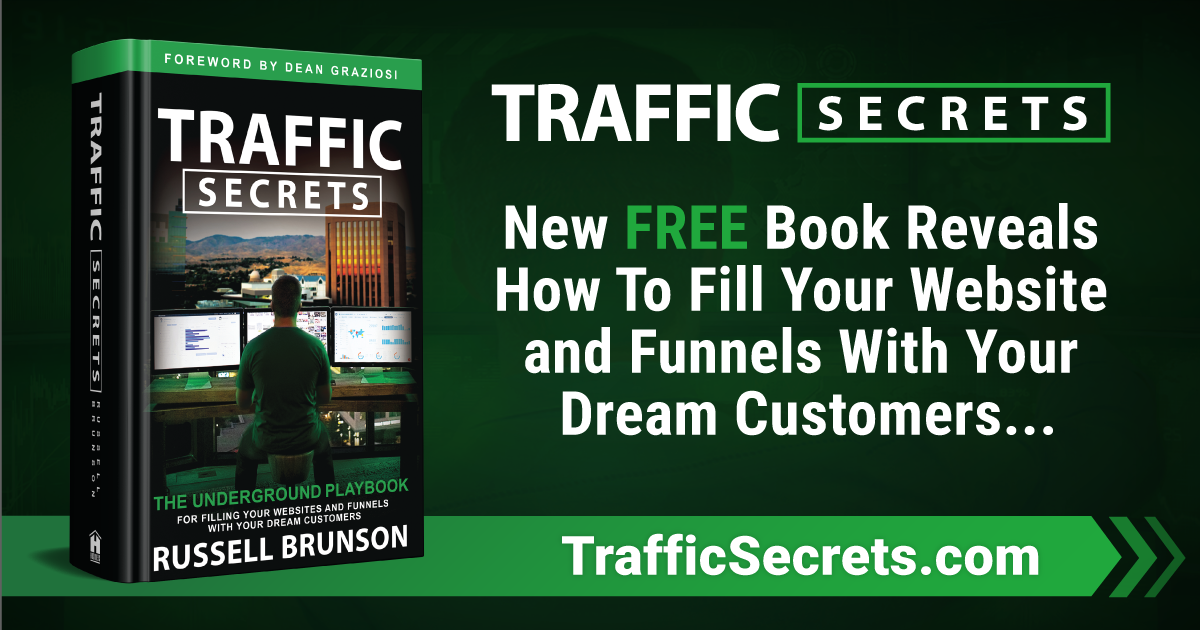Feeding Your Cashflow:
Why Learning to Sell is Critical for Your Business
- Bootstrapping
- Customers
- Marketing
- Learning How to Sell
- Starting a Business
- Team
- Writing
- Workshop for Graphic Designers
6 Steps to Grow Your Email House List with Aweber
The Power of Marketing Automation
Own Your Marketing Platform: Build Your Marketing Engine
How and Why to Discover Your USP Unique Selling Proposition
Why Clickfunnels is so important for Creative Professionals
Sales Funnels How and Why to Get Into the Game
 You are starting to build a business that you are proud of. You know that it has the potential to become a full-time business that can give you and your family the freedom and opportunities that you dream of.
You are starting to build a business that you are proud of. You know that it has the potential to become a full-time business that can give you and your family the freedom and opportunities that you dream of.
But is the thought of having to sell making you squirm?
You might have spent years in a successful career, but sales isn’t up your alley. And you are not alone. Most early-stage entrepreneurs have a really hard time selling.
As Gabriel Weinberg, bestselling author of ‘Traction’ points out, numerous businesses fail because they do not adequately promote themselves. Not because they don’t have a great product or service.
To grow your side-business into a full-time entity, you have to generate significant revenue. You must roll up your sleeves and begin selling, even if it’s outside your comfort zone. Your business needs cash flow to survive and you must re-invest that cash back into your business to grow. Otherwise, you will spend years running a sub-scale business with little growth.
The good news? Sales is a lot simpler than you think!
What’s Stopping You?
What’s holding you back from selling?
Here are three common reasons why we hesitate to sell and how to overcome them:
1. Fear of Being Perceived as ‘A Sales Guy’
The quintessential image of a salesperson is someone who is pushy – certainly not something that inspires respect and admiration. The last thing you want at this advanced stage in your career is people branding you as that sort of a salesperson.
However, the most talented salespeople don’t ‘sell’ in the conventional sense and are never pushy. Instead, people actually want to talk to them.
How?
The key to this is relevance. Does your prospect really need what you have to offer? Do they have a possible intent to buy?
To answer these questions, define your persona – an avatar of your ideal customer. Describing this persona will help you accurately identify the specific people/companies you should target, rather than make random pitches.
Most budding entrepreneurs fail to define accurate personas and consequently waste their time talking to people who have little reason to buy. No wonder they are perceived as pushy.Defining your persona also helps you develop a superior understanding of your prospects’ challenges. This makes it far easier for you to convince people because they can see that you understand their world.
This single step can transform your selling caliber from that of an everyday driver to a Formula 1 racer.
 2. Fear of not Knowing how to Sell
2. Fear of not Knowing how to Sell
Sales can be quite intimidating if you have never been in a sales or marketing role.
But learning to sell has never been easier! There are excellent blogs, podcasts and books to refer to. The more you learn, the more confident you will feel to go out there and get some deals.
You could attend sales training programs that allow you to sell in a controlled environment through role plays. Think of it as practicing on a simulator before graduating to a real race car.
You could also attend events for entrepreneurs. These events give you the opportunity to share your ideas with fellow entrepreneurs without pitching to them and get their feedback. You will gather valuable unbiased insights into how people perceive your product/service including possible objections. This will allow you to craft a more compelling sales pitch for actual sales calls.
Moreover, it’s very likely that you will meet people at such events who will be interested in buying from you or refer you to someone they know.
3. Fear of Rejection
Do you hesitate to sell because you are afraid of getting turned down?
Don’t be! Rejection is an inescapable part of the sales process. Out of every lead that you gather, only a small percentage will become your customers.
Barbara Corcoran, investor at Shark Tank, maintains that the biggest difference between the most successful and the least successful salespeople is their ability to accept rejection and quickly move on to the next deal. The less time and energy you spend feeling dejected, the more you will save to invest on new prospects.
There are several techniques to deal with rejection, but I find this one by sales expert Steli Efti, CEO of Close.io, to be extremely powerful. Steli recommends that you keep a rejection target for the day in absolute numbers. You have to get rejected at least that many times to meet your target.
I know this sounds insane! But no, it doesn’t mean that you should try to sabotage your own deals.
Here’s the simple logic why this works: A certain percentage of rejections is inevitable even if you are the sales world’s equivalent of Michael Schumacher. If you aren’t getting enough rejections in absolute numbers, it implies that you are not making enough calls and you need to push harder.
Of course, for this to work, you need to set an absolute number win target as well!
 Author: Peter Banerjea
Author: Peter Banerjea
Peter is Co-Founder of SuccessIsWhat a blog on leadership and productivity. His work has been featured on Huffington Post, Fast Company and Lifehacker. SuccessIsWhat also helps small businesses grow with content marketing and influencer marketing services.
What is Clickfunnels®?
SALES & MARKETING AUTOMATION
Clickfunnels® empowers entrepreneurs to rapidly build sales funnels and marketing funnels like no other platform on the planet. But Clickfunnels® is way more than just a piece of software where you can create and run your business, it is the new standard for running your business. Clickfunnels® has a strong movement behind them and massive community that are there for each other.
Disclosure: I am an independent ClickFunnels Affiliate, not an employee. I receive referral payments from ClickFunnels. The opinions expressed here are my own and are not official statements of ClickFunnels or its parent company, Etison LLC.


 2. Fear of not Knowing how to Sell
2. Fear of not Knowing how to Sell Author: Peter Banerjea
Author: Peter Banerjea

